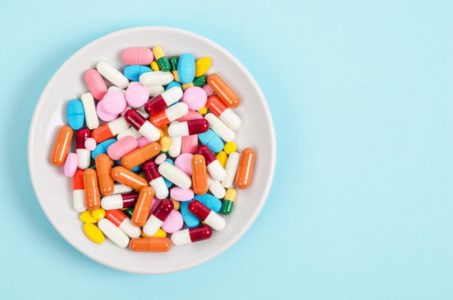 One of the world’s premiere science journals has published a research paper by an Indian group on pain relieving properties of a popular homeopathic medicine, rekindling the century-old debate on whether homeopathy can be considered as a science.
One of the world’s premiere science journals has published a research paper by an Indian group on pain relieving properties of a popular homeopathic medicine, rekindling the century-old debate on whether homeopathy can be considered as a science.
Published in the journal Scientific Reports from the Nature group, the paper through carefully crafted experiments on cell-line and laboratory rats, describes how ultra-diluted homeopathic medicine Toxicodendron pubescens, popularly known as Rhus Tox can reduce pain in rats. The study shows protective effects of Rhus Tox against sciatic nerve injury through maintenance of normal nerve architecture and inhibition of inflammatory changes. The neuro-protective effect suggests involvement of anti-oxidative and anti-inflammatory mechanisms, says the study published recently in the journal. Ten Indian researchers from R C Patel Institute of Pharmaceutical Education and Research, Shirpur, Dhule in Maharashtra; School of Biotechnology at Kalinga Institute of Industrial Technology, Bhubaneswar and College of Medicine and Health Sciences, UAE University, Al Amin collaborated on the study that sparked a fresh debate on whether the alternative medicine discipline founded by Samuel Hahnemann in the 18th Century had any scientific basis. “Experiments are well conducted and measurements look convincing. But still it is an enigma on how a molecule in such a low dilution can trigger any biochemical effect,” Samir K Brahmachari, a foremost Indian biologist and former director general of Council of Scientific and Industrial Research, told DH.
Asked for explanation behind such effects, C R Patil, a professor of pharmacology at the Dhule institute and one of the corresponding authors of the paper admitted that they didn’t have an explanation for the mechanism of action of what was seen in in the experiments. Patil said there are some mistakes related to some of the figures published in the paper for which a corrigendum would be printed soon. But the study’s basic conclusion on the pain relieving properties of Rhus tox remains the same.
The rats were injected with the medicine of high dilution (10 to the power minus 12) after artificially causing injury in them through a surgery. The animals that receive were found to have better pain-bearing ability (measurable in the experiment) compared to those that didn’t have the medicine. When the medicine (in several dilutions) was applied to the cells, the researchers recorded some changes related to “oxidative stress” and “cytokines levels”, which are also indicative of the medicine’s pain relieving properties. “The significance of an article is determined by its readership after publication and we welcome discussion and debate regarding papers published in Scientific Reports.
Maintaining the accuracy of the scientific record is of primary importance to us as publishers and we update the literature when appropriate. Scientific Reports does not endorse any particular point of view as a result of the research we publish,” a spokesperson of the journal said, responding to DH queries on why a paper on homeopathy should find a place in a science journal. “We need proper human randomised control trials of homeopathy. A mechanistic understanding of how homeopathy works should follow,” added Anurag Agarwal, biologist and director of Institute of Genomics and Integrative Biology, New Delhi.
Source: https://www.deccanherald.com/national/study-rekindles-debate-695775.html




